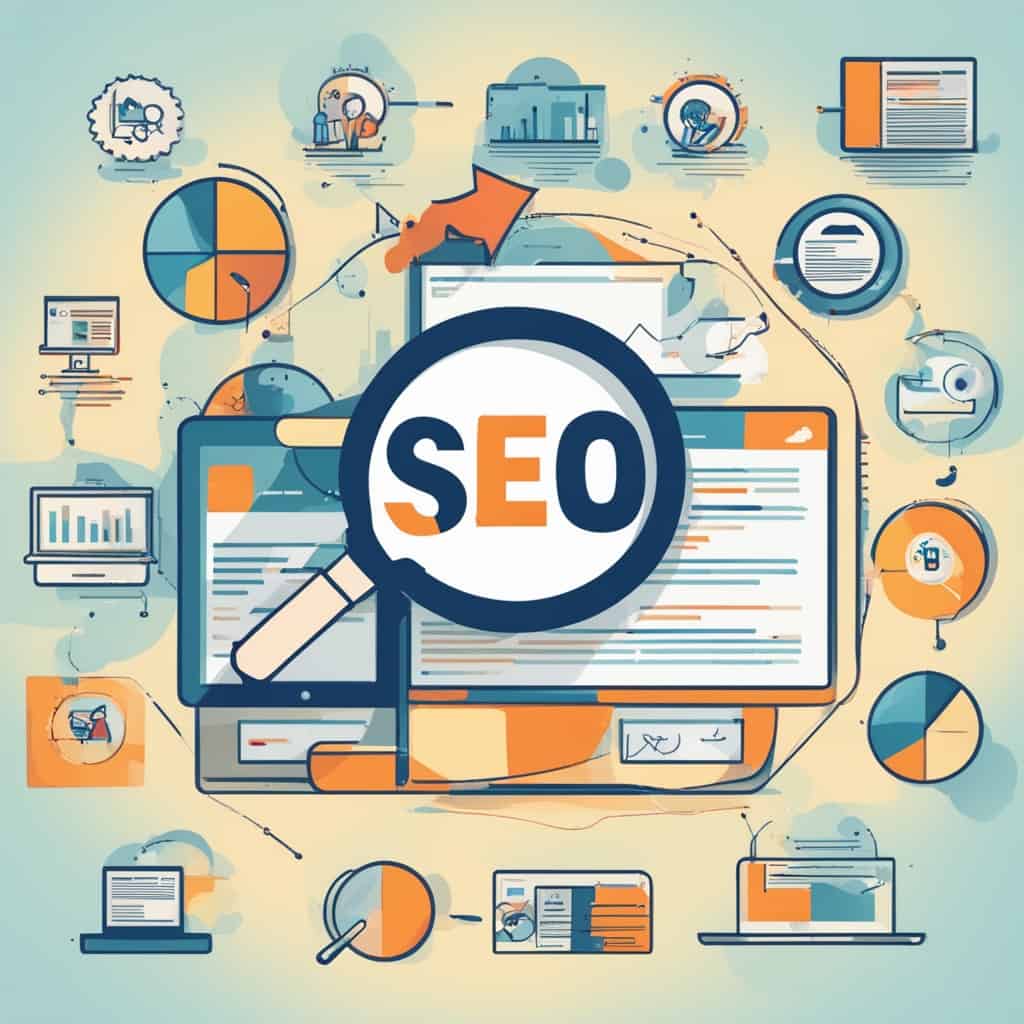How to Save Your Business with AI in 30 Days (While Your Competitors Wonder What Hit Them)
The Hard Truth About AI and Your Business Right Now
Let’s cut through the noise and get real about what’s happening. AI didn’t kill SEO—it supercharged it into something most business owners don’t recognize anymore. While you’re reading articles about whether AI is good or bad for business, your competitors are already using it to steal your customers.
Here’s where most businesses are right now: They’re treating AI like businesses treated the internet in 1997. “It’s interesting, but we’ll wait and see.” Meanwhile, technology is evolving faster than a Formula 1 race car, and business adoption is moving like a Sunday drive through the countryside.
The result? Your competition is using AI-powered tools to dominate search results, automate customer service, and predict what customers want before they even know it themselves.
Why Most Digital Marketing Fails (And How AI Fixes It)
Every digital marketing disaster starts with the same problem: Nobody knows who you are, most people don’t need what you’re selling right now, and everyone’s psychologically wired to trust brands that feel personal and relevant.
Most businesses throw marketing spaghetti at the wall, hoping something sticks. They target the wrong audiences because they’re flying blind without first-party data. And here’s the kicker—most don’t even know what first-party data is, which tells you everything about how well Google has educated their main revenue sources.
First-Party Data: Your Secret Weapon Against AI-Powered Competitors
First-party data is the goldmine of information you collect directly from your customers and website visitors. It’s your analytics, survey responses, customer interactions, and purchase behavior.
Second-party data is someone else’s first-party data that they share with you (like when you hire a marketing agency and share your customer data with them).
Third-party data is information collected by companies that have nothing to do with your business—like market research firms that sell industry reports to news organizations and businesses.
Here’s what’s shocking: The number of businesses running websites without Google Analytics or any tracking is like driving cross-country without a fuel gauge. You’re constantly worried and have no idea when you’re about to run out of gas.
Quick Setup for Data-Driven Success
- WordPress users: Install Google Site Kit and let it set up Analytics automatically
- Everyone else: Get your IT team or agency to install Google Analytics immediately
- Alternative option: Consider Piwik PRO for privacy-focused analytics
- Non-negotiable: You need independent measurement of where your website traffic comes from and what visitors do

Your 30-Day AI Business Rescue Checklist
Before You Start: The 5 Essential Steps
- Figure out what AI can actually do for your business (not what tech blogs say it should do)
- Audit your current data sources and find your path to quick wins
- Choose the right AI tools for your specific industry and problems
- Develop AI skills through hands-on practice (no theory, just results)
- Get your team on board before implementing anything
Pick Your First AI Victory
Start with one of these proven money-makers:
- Predictive maintenance: Fix problems before they cost you customers
- Automated customer service: Handle common questions 24/7
- Lead generation: Find and qualify prospects while you sleep
- Business forecasting: Predict slow periods and plan accordingly
- Lost sales recovery: Analyze why deals fell through and win them back
The “Get Loud” Strategy That Wins in 2025
Forget the old playbook of checking boxes and following 20-year-old marketing formulas. Today’s winners treat their business like it has its own TV channel—focused, consistent, and impossible to ignore.
The TikTok Revolution Changed Everything: People now expect to find what they want with zero friction. While traditionalists complain about “the good old days,” 4-5 million customers are embracing effortless search experiences through platforms like TikTok’s search features and Google’s AI Mode.
Your 30-day mission: Stop trying to keep up with everyone else’s noise. Focus on making your business the obvious choice for your specific customers.
Week-by-Week Breakdown: Your AI Transformation
Week 1: Acknowledge and Attack Your Weaknesses
If you weren’t struggling somewhere, you wouldn’t be looking at AI solutions. Write down everything that’s broken, annoying, or could be better. Keep that list visible for the entire 30 days.
Your action plan:
- Research solutions for each problem you identified
- Find trusted tech advisors or tools
- Say this magic phrase: “I’m in X industry with Y problems. I know Z solutions exist. I have a game plan—let’s work together to execute it.”
Week 2: Go Customer-First (Finally)
Reality check: 50% of your potential customers don’t know you exist. The other 50% stick with you because you’re the best deal they know right now, not because they love your brand.
Customer acquisition strategy:
- Study your data to understand who’s not engaging with you (use Google Analytics 4 audience insights)
- Figure out why they’re ignoring you (hint: you probably haven’t given them a reason to care)
- Develop solutions to their specific problems using custom GPTs for brainstorming if needed
Week 3: Measure Early Wins and Double Down
By week three, you’ll have tools in place and your team will start feeling energized by real changes. Time to accelerate.
AI tools that deliver fast profits:
- Descript: AI-powered video editing that saves hours
- LiveChat: Your first AI chatbot for instant customer support
- Otter.ai: AI meeting notes and action items
- Tidio: Customer service agents that work around the clock
- Poe: Test different AI agents to find your perfect match
Week 4: Lock in Your Next 30 Days
Evaluation time: Check your original goals against your analytics and early AI tool results. Share findings with your team and plan your next month.
Key question: How can you maintain this 30-day improvement cycle long-term?
What You’ll Accomplish in 30 Days
You won’t revolutionize your entire business in one month, but you’ll build the foundation for continuous competitive advantage. Most importantly, you’ll establish a learning routine that powers all your future marketing efforts.
When you commit to systematic improvement and stick with it, you automatically position yourself ahead of competitors who are still trying to figure out what changed.
What’s Next After Your First 30 Days?
Once you’ve built momentum and proven results, it’s time to extend your AI strategy over the next 12 months. For those who stick with the process, there’s an endgame that transforms how your entire industry operates.
But first, let’s make sure you understand the new landscape. Do you know the difference between AEO (Answer Engine Optimization), GEO (Generative Engine Optimization), and traditional SEO? Which one should you be focusing on? What’s actually helping your business right now?
Next up: “Is My SEO Actually Working in the AI Era?”
Related Resources:


